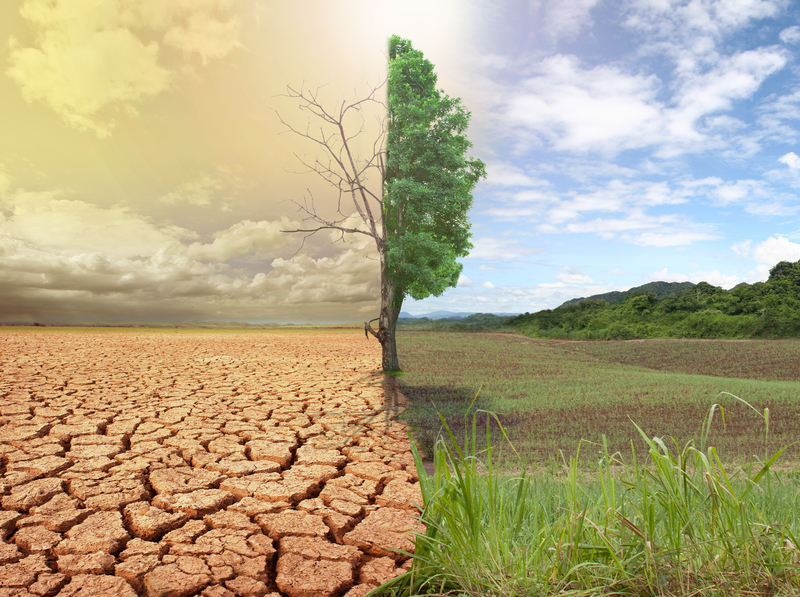Cultivating an Eco-Responsible Mindset
Posted on 20/12/2024
In today's rapidly evolving world, the need to adopt an eco-responsible mindset has never been more pressing. From climate change to loss of biodiversity, our planet is facing significant environmental challenges that affect us all. By cultivating an eco-responsible mindset, individuals and communities can contribute to sustainable living, reducing the ecological footprint, and preserving the Earth for future generations. Below, we explore actionable steps, benefits, and potential drawbacks associated with an eco-responsible mindset.
Understanding an Eco-Responsible Mindset
An eco-responsible mindset involves being conscious of our environmental impact and making decisions that support sustainability. This mindset encompasses various aspects such as reducing waste, conserving resources, and promoting biodiversity. It requires a shift from habitual, often careless behaviors to intentional and mindful choices that benefit the environment.

Why is it Important?
Embracing an eco-responsible lifestyle is crucial for several reasons. It helps mitigate climate change, reduces pollution, conserves natural resources, and protects ecosystems. Beyond the environmental benefits, it fosters a sense of community and connection to nature, encouraging individuals to take responsibility for their actions and think long-term.
How to Cultivate an Eco-Responsible Mindset
Adopting eco-responsibility doesn't happen overnight. It's a continuous journey that involves learning and habit changes. Here are some tips to foster an eco-responsible mindset:
- Educate Yourself: Understanding the issues at hand is the first step. Read books, watch documentaries, and follow credible sources to stay informed.
- Reduce, Reuse, Recycle: Follow the three R's diligently. Aim to reduce waste, reuse items whenever possible, and recycle responsibly.
- Support Sustainable Brands: Choose products from companies committed to sustainable practices. This includes everything from food and clothing to electronics and home goods.
- Conserve Energy and Water: Simple actions like turning off lights when not in use and fixing leaks can make a significant difference.
- Embrace Minimalism: Focus on quality over quantity. This reduces waste and promotes a sustainable lifestyle.
- Volunteer and Advocate: Get involved in local environmental initiatives and advocate for policies that promote sustainability.
Pros and Cons of an Eco-Responsible Mindset
Like any significant lifestyle change, cultivating an eco-responsible mindset comes with its own set of advantages and challenges.
Pros
- Environmental Impact: Reduction in waste, conservation of natural resources, and lower carbon footprint.
- Health Benefits: Often involves consuming organic, local produce which can be healthier.
- Cost Savings: Conserving energy and water can lead to lower utility bills. Reusing items can also save money.
- Enhanced Well-being: A minimalist, nature-oriented lifestyle can contribute to mental and emotional well-being.
Cons
- Initial Costs: Sustainable products can sometimes be more expensive upfront, though they often save money long-term.
- Convenience Factor: Green choices can be less convenient than traditional ones, requiring more effort and time.
- Limited Availability: Depending on where you live, access to sustainable products and services may be limited.
Practical Tips for Everyday Eco-Responsibility
Here are some practical tips to integrate eco-responsibility into daily life:
- Carry Reusable Bags: Avoid plastic bags by carrying reusable shopping bags.
- Compost: Compost organic waste which enriches the soil and reduces landfill waste.
- Use Public Transportation: Opt for public transit, cycling, or walking instead of driving to lower carbon emissions.
- Grow Your Own Food: If possible, start a garden to grow fruits and vegetables, reducing your carbon footprint.
- Support Local Farmers: Buy from local farmers' markets to support sustainable agriculture.

Takeaways
Adopting an eco-responsible mindset is essential for a sustainable future. It's about making conscious choices and understanding the impact of our actions. Through education, daily habits, and community involvement, we can all contribute to a healthier planet.
Conclusion
Cultivating an eco-responsible mindset is a powerful and necessary step towards sustainability. It involves being mindful of our daily choices and striving to reduce our environmental impact. While there are challenges and trade-offs, the long-term benefits for our planet and future generations are immeasurable. By making small, consistent changes, we can collectively make a significant difference.



